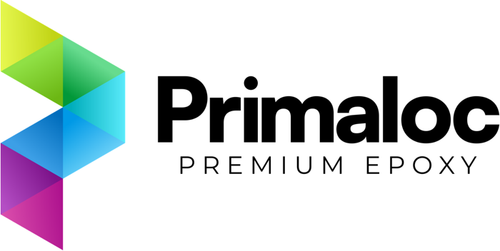Bar top epoxy is a popular choice for finishing various decor elements, fixtures, and pieces of furniture, particularly bar tops. It offers a range of both functional and aesthetic advantages as a protective coating and is straightforward to apply, making it suitable for both professionals and DIY enthusiasts.
For projects in both commercial settings and homes, opting for a high-quality bar top epoxy can enhance any bar, delivering exceptional results that not other type of bar top sealant is capable of.
Some of the benefits provided by a high-quality premium bar top epoxy include:
-
An Unyielding Finish: A premium bar top epoxy boasts incredible strength, resisting many types of physical damage, such as scratches, cuts, and dents.
-
High Visual Clarity: Bar top epoxies are transparent, with high purity that showcases the the substrate materials and anything else beneath or within the final finish. Furthermore, this type of epoxy is highly customizable with colorants such as powder pigments and epoxy dyes.
-
An Enduring Lifespan: With a good bar top epoxy, you can expect a long-lasting finish, with a minimum lifespan of 7 years!
- Low-Effort Maintenance: Bar top epoxy is also incredibly resistant to staining due to its smooth exterior, which makes it remarkably easy to clean even when accidents do occur.
But how does epoxy resin handle water and similar liquids—is it waterproof? That's what we'll be explaining below in this Primaloc Answers guide.
Is Bar Top Epoxy Waterproof?
Yes, bar top epoxy cures to a waterproof finish.
A key advantage of using bar top epoxy as a finishing material is its exceptional ability to waterproof substrate surfaces. With an epoxy coating, worries about wood substrates suffering from rot, moisture damage, or warping become things of the past.
Once cured, an epoxy resin finish becomes hydrophobic, actively repelling water and other liquids rather than absorbing them. This causes liquids to bead on the surface, making them easy to clean up or allowing them to evaporate over time. The seamless bond epoxy creates with the substrate, and its own cohesive integrity, presents a surface impenetrable by water.
Easy to Clean and Maintain, Too!
In addition to being waterproof, epoxy resin surfaces are also effortless to clean and maintain. With simple solutions such as soap and warm water, residues, spills, and other messes are easily whisked away, leaving a spotless exterior that doesn't retain unpleasant odors.
Ready to sanitize as well?—Not a Problem!
Sanitizing cleaning sprays and diluted alcohol are both exceptional for killing germs and bacteria, making your epoxy surfaces safe for use in almost any way. No harsh chemicals are needed to clean epoxy resin surfaces.
What Makes Epoxy Waterproof?
Well, it's Epoxy becomes waterproof due to its chemical composition and the curing process it undergoes. The chemical reaction that occurs when both epoxy components are mixed together not only binds the molecules of the resin and hardener together but also cross-links them, creating an extremely tight, interlocking network of bonds at the molecular level, which leaves no space for water to permeate.
The result of this is a continuous, non-porous surface that effectively seals any substrate it is applied to, preventing water and moisture from passing through. Furthermore, the chemical nature of the cured epoxy is such that it does not absorb water, unlike other materials that might swell or deteriorate when exposed to moisture, thereby enhancing its waterproofing capability.
Most Important of All Is Choosing a High-Quality Epoxy.
At the end of the day, your epoxy finish can only be as good as the epoxy you use to produce it. Regardless of how well you perform the epoxy process, if there are substantial flaws in the resin product itself, you might end up with a shoddy result that lacks the proper waterproofing, as well as the durability, lifespan, and ease-of-maintenance expected of an epoxy resin coating.
When shopping for epoxy, there are some things you should be mindful of. For instance, there has been a heavy proliferation of low-cost epoxy "budget brands" throughout stores on the internet. These are especially prevalent in stores that allow 3rd-party sellers, such as Amazon. The easiest way to identify these products is an unusually low price and a foreign origin.
Imported Epoxy Bypasses Quality Regulations
Imported epoxy brands—often sold at very low initial prices—are not susceptible to many of the quality assurance and safety regulations that resin produced here in the U.S. undergo.
As a result, there are many high-risk epoxy resins on the market. Though the cost may be lower for these products, it's often because the manufacturer cut corners during production, whether by using substandard ingredients, by adding in fillers, or by simply rushing the production process to mass produce a subpar product at the user's expense.
You can avoid this issue by making sure to buy from a credible epoxy dealer with an established brand known for its quality. At Primaloc Epoxy, our Bar & Table Top Epoxy is top-tier in all categories—all while being 100% produced in the USA.
Primaloc Epoxy: Premium Epoxy for Premium Results
When it comes to epoxy resin, Primaloc Epoxy gets the job done. Our epoxy resin is premium-grade, with high performance in every category.
Epoxy resin can be beautiful, strong, and long-lasting—which is why you shouldn't compromise on quality. With Primaloc Epoxy Resin, you get the ultimate finish in durability and visual appeal.
Protect your surfaces by giving them a rock-solid epoxy finish. Choose strong. Choose reliable. Choose Primaloc.




